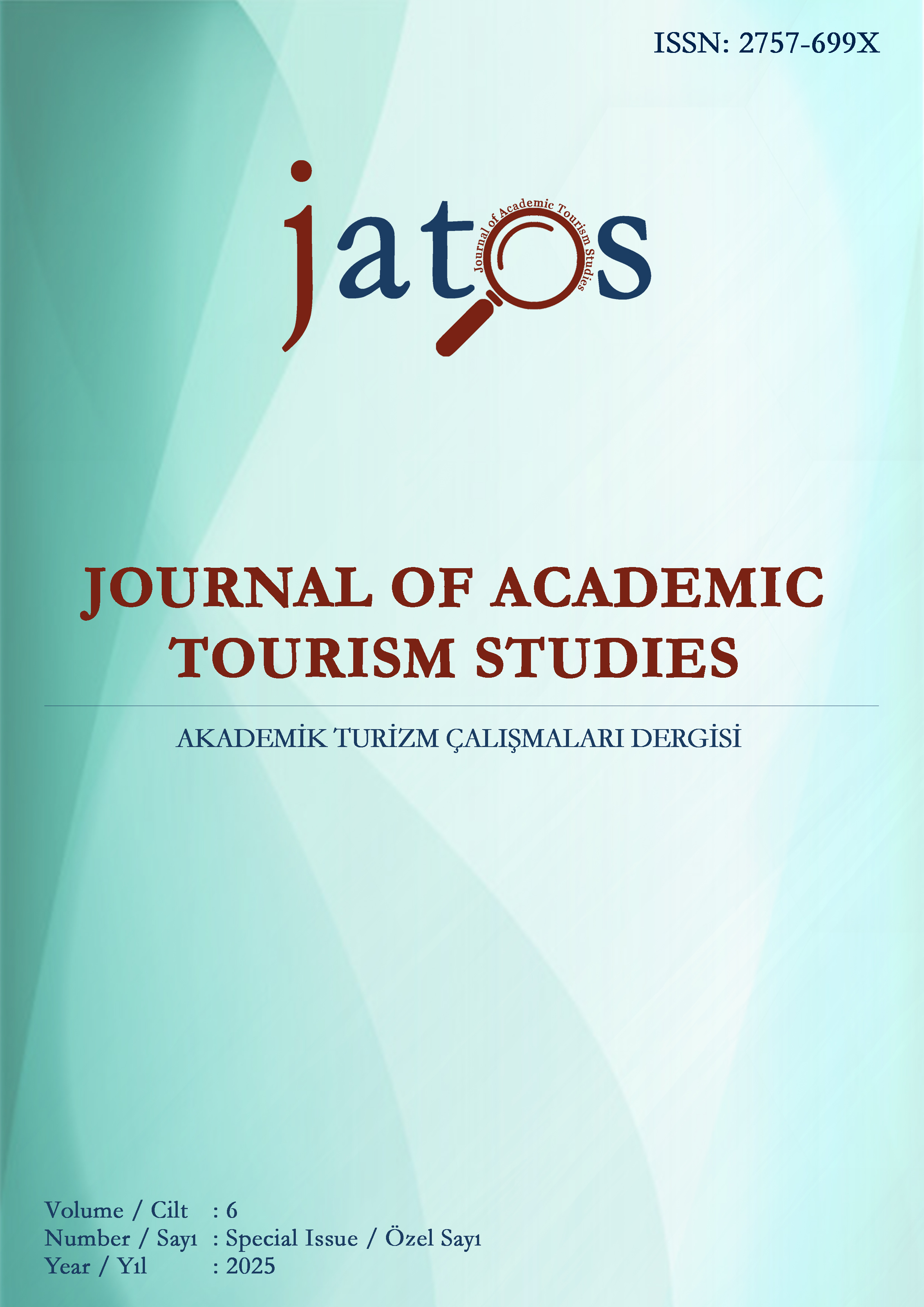Author :
Abstract
Bu çalışmanın amacı, dijital teknoloji kullanımının kırsal turizme getireceği avantaj ve dezavantajları ortaya koymak, AB’den örneklerle konuyu somutlaştırmaktır. Bu çalışma, sosyal bilimlerde nitel araştırma kapsamında hazırlanmıştır. İlgili literatürden elde edilen verilerle kuramsal temel oluşturulmuş, uygulama örnekleri çalışmaya somut bulgular sağalmıştır. Konu akışı güncel kırsal turizm, kırsal turizmde dijitalleşme, akıllı köyler ve akıllı kırsal turizm ve Avrupa örnekleri üzerinden tasarlanmıştır. Bu yönüyle çalışmanın betimsel analiz sınırları içerisinde kaldığı söylenebilir. Dijital teknolojilerin kırsal turizmi nasıl dönüştüreceği henüz tam anlaşılmış değildir. Kimilerine göre büyük kolaylıklar ve avantajlar getirecek, diğerlerine göre kırsal turizm kırsal kültürden beslenen özgünlüğünü kaybedecektir. Avrupa’da dijitalleşmiş “akıllı kırsal turizm” örnekleri İtalya, İspanya, Romanya ve Slovenya üzerinden değerlendirildiğinde; dijitalleşmenin tanıtım ve pazarlamada, yeni profilden turistleri çekmede ve yerel halkın yaşam kalitesini iyileştirmede olumlu etkilerde bulunduğu görülmüştür. Kırsal turizmde dijitalleşmenin bu olumlu etkilerini çoğaltmak, olumsuz etkiler yaratmasını önlemek için; kırsal turizmin kırsal tanıtım ve pazarlamasında, ağ kurmada, güvenliği sağlamada, turistin yer araması ve tavsiye almasında, ulaşım ve konaklamada, deneyimlerin paylaşılması ve geri dönüşlerde dijital teknolojiden yararlanmak son derece akılcıdır.
Keywords
Abstract
The aim of this study is to identify the advantages and disadvantages that the use of digital technologies may bring to rural tourism and to substantiate the discussion with examples from the European Union. This study was conducted within the framework of qualitative research in the social sciences. A theoretical foundation was established through data obtained from the relevant literature, while case examples provided concrete findings. The flow of the study is organized around the topics of contemporary rural tourism, digitalization in rural tourism, smart villages and smart rural tourism, and European case studies. In this regard, the study can be considered within the scope of descriptive analysis. The transformative impact of digital technologies on rural tourism is not yet fully understood. Some argue that these technologies offer significant convenience and benefits, while others contend that digitalization may cause rural tourism to lose its authenticity, which is deeply rooted in rural culture. Evaluations of digitalized “smart rural tourism” practices in countries such as Italy, Spain, Romania, and Slovenia reveal that digitalization has had positive effects on promotion and marketing, attracting new tourist profiles, and improving the quality of life for local communities. To enhance these positive outcomes and mitigate potential negative effects, it is highly advisable to utilize digital technologies in areas such as rural tourism promotion and marketing, networking, ensuring safety, location search and recommendation systems, transportation and accommodation, as well as experience sharing and feedback.





